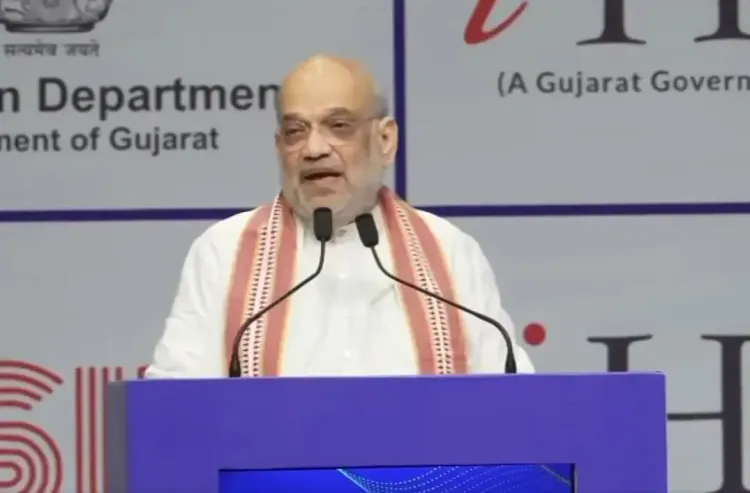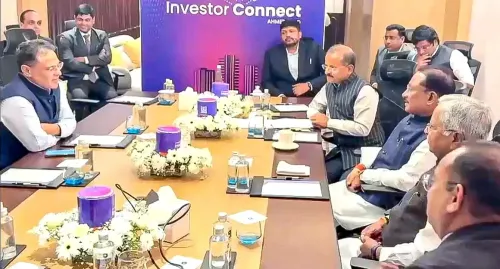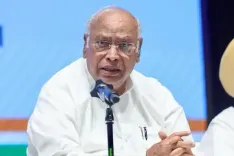Did Amit Shah Inaugurate the Startup Conclave in Gujarat?

Synopsis
Key Takeaways
- Amit Shah inaugurated the Startup Conclave 2025 in Gandhinagar.
- More than 170 startups are showcasing their innovations.
- Focus on transforming youth from job-seekers to job-creators.
- Encouragement for investors to support early-stage ventures.
- Challenges like access to funding remain critical for startups.
Gandhinagar, Sep 23 (NationPress) Union Home and Cooperation Minister Amit Shah officially launched the two-day Startup Conclave 2025 at Mahatma Mandir, uniting founders, investors, and policymakers from across the nation for an extensive showcase and policy dialogue.
Joined by Gujarat Chief Minister Bhupendra Patel and Higher Education Minister Rushikesh Patel, HM Shah emphasized the transformation of the nation's youth from “job-seekers to job-creators”, encouraging investors to support early-stage ventures.
He highlighted that startups have created approximately 1.79 million jobs and pointed out that 48% of new startups are led by women, emphasizing the sector’s expanding social and economic influence.
“The Startup Conclave serves as a platform to translate India's knowledge and innovation into jobs and businesses,” HM Shah remarked, urging investors to “assist new startups in their growth” and envisioning a future where startups will significantly benefit investors.
Organizers indicated that over 170 startups are showcasing their products and services during the two-day event, which spans various sectors like technology, healthcare, agritech, fintech, and green energy. The agenda includes an exhibition featuring prototypes, direct dialogues between founders and industry experts, and seven themed sessions dedicated to scaling innovation, financing models, and collaborations between universities and industries.
CM Bhupendra Patel welcomed the conclave as a chance to strengthen Gujarat’s status as an entrepreneurial hub, while Higher Education Minister Rushikesh Patel underscored the importance of universities and research institutions in mentoring nascent companies and transitioning academic research into commercial endeavors.
Participants noted the conclave provided essential visibility and networking opportunities, but also raised concerns about ongoing challenges. “Access to early-stage funding and initial customers continues to be a hurdle for many entrepreneurs,” one exhibitor remarked.
Investors present reiterated the necessity for clearer pathways for pilot procurement and incubation tailored to specific sectors, especially for climate and health tech startups. A round-table discussion on the sidelines explored pragmatic steps to enhance the ecosystem, including better beneficiary registries, blended finance strategies for climate tech, and incentives to promote institutional procurement from startups.
Organizers stated that the conclave aspires to generate actionable policy recommendations for both state and central governments and to establish a matchmaking platform connecting startups with investors and procurement prospects.
As the two-day program unfolds, the impact of the conclave will be gauged by its capacity to transition from rhetoric to tangible outcomes: firm investor commitments, pilot projects in collaboration with government partners, and policy reforms that facilitate the journey from prototype to scale. For numerous founders attending, the immediate aspiration is straightforward — transform visibility into funding, customers, and contracts that ensure the viability of young ventures beyond the proof-of-concept stage.









